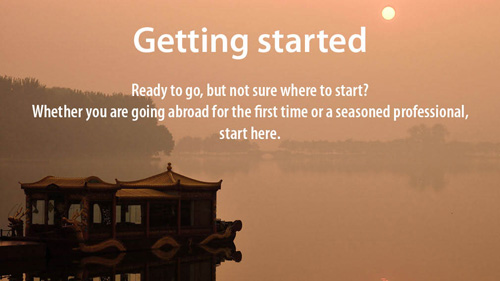Human rights law is a broad category of law, encompassing both humanitarian law and refugee law. It covers literally hundreds of international human rights agreements and laws that have been implemented to protect the rights of people. Quite often, the practice of human rights law overlaps with the category of public interest law. Human rights cases involve individuals who claim other individuals, corporate entities, or political authorities have violated their rights. Human rights lawyers work in international, regional and domestic courts of justice to defend people’s rights according to various international agreements, including the United Nations Declaration of Human Rights, the Rights of Indigenous Peoples, Children’s Rights.
→ Humanitarian law is a branch of human rights law that serves to protect the rights of civilians during war-time. Once countries are at war, their governments are bound by the jus in bello (justice in war), or the laws of armed conflict. Specifically, humanitarian law prohibits the use of illegal weapons, such as biological and chemical weapons, prohibits the bombing of civilians, and protects the rights of captured, or wounded combatants.
→ Refugee law is another sub-sector of human rights law. It deals with the rights and protections of refugees, or individuals forced to flee their homes because their countries are unwilling or unable to protect them. There are various international agreements on refugees and internally displaced peoples (IDPs), most notably the Universal Declaration of Human Rights, which was first signed following World War II in 1948. Laws pertaining to refugees differ at international, national, and regional levels; a refugee lawyer must verse himself/herself in localized legal frameworks, as well as international legal agreements.
Due to global economic and political instability, the numbers of people seeking refugee status have been increasing dramatically. In 2016, the UN Refugee Agency (UNCHR) estimated that 65.3 million people were forcibly displaced from their homes. Refugee lawyers quite often have to negotiate, or dispute the refugee laws of certain states—as national laws can differ from international laws—in order to obtain refugee status and protections for their clients.
What do human rights lawyers do?
Human rights lawyers work in a wide range of positions and manage diverse portfolios. Professional activities could include doing research that seeks to prevent and eliminate human rights abuses worldwide, monitoring human rights conditions, writing reports and papers, engaging in social and political advocacy and lobbying work, representing vulnerable populations at legal aid clinics, litigation, and conducting on-site investigations. Human rights lawyers might also work in the areas of supporting refugees to gain citizenship, or political asylum in other countries, or provide policy analysis for national and international organizations.
Human rights litigation is a very people-oriented area of the law. These lawyers need excellent communication skills, particularly when working cross-culturally, often with vulnerable populations. A typical day could involve meeting with clients and witnesses, collecting statements, writing court documents, and advocating to various social service organizations, or government departments, on behalf of clients.
Who is hiring?
Most human rights lawyers work in the public sector, employed by government agencies, inter-governmental organizations, including the United Nations, the UNHCR, the European Union, and funded by academic institutions, and along with non-governmental organizations, including Oxfam, Amnesty International, amongst many others. Many of these positions are highly sought after, meaning you’ll have to work your way from the bottom up, accepting unpaid internships, or paid internships that barely cover your basic living costs. Persistence is key.
→ Government
Seek out entry-level jobs and internship opportunities with Global Affairs Canada, USAID, and/or the UK Department for International Development. Paid positions are highly sought after; applicants will be competing with lawyers with 3 to 5 years of experience and specialization in international law. An excellent way to get your foot in the door and gain experience is to apply for an unpaid internship.
In Canada, Global Affairs funds a program called the Young Lawyers International Program (YLIP), run by the Canadian Bar Association. This internship pairs emerging lawyers and law students with human rights organizations in the Global South. Internships run six months to one-year in the international location, providing emerging professionals with the opportunity to gain critical field experience.
In the U.S., check out job and internship opportunities with USAID.
→ Inter-Governmental Organizations
There are entry-level positions and unpaid internship opportunities with inter-government organizations in the field of international human rights law. Both paid and unpaid opportunities are highly competitive. Language skills, cultural competency, and a strong knowledge of social and political issues, along with relevant volunteer experiences and top academic marks, will help you stand out from the crowd. Visit the websites of the following INGOs to learn about their career and internship opportunities:
United Nations - https://careers.un.org/
United Nations Refugee Agency (UNHCR) - http://www.unhcr.org/careers.html
International Court of Justice (ICJ) - http://www.icj-cij.org/registry/index.php?p1=2&p2=5&p3=3
International Monetary Fund (IMF) - https://www.imf.org/external/np/adm/rec/job/careers.htm
Organization of American States (OAS) - http://www.oas.org/dhrs/dhr/employment_opportunities.asp
World Bank - http://www.worldbank.org/en/about
World Health Organization (WHO) - http://www.who.int/employment/en/
→ Non-Governmental Organizations
Paid positions with non-governmental organizations (NGOs) in the area of international human rights are far and few, in between. Instead, consider applying for an unpaid internship with NGOs, including Amnesty International and Human Rights Watch. If you aren’t successful, many emerging lawyers look for ways to fund their own internships by approaching smaller NGOs with their skill set and expertise, and applying for funding from various research grants, typically offered by law schools.
Check out the internship postings offered by Amnesty International and Human Rights Watch. Below is a list of some of the larger NGOs that work in the area of international criminal law:
Amnesty International
Center for Justice and Accountability
Human Rights Watch
Humanitarian Law Center
International Center for Transitional Justice
International Commission for Missing Persons
International Committee of the Red Cross
International Republican Institute
National Democratic Institute
National Endowment for Democracy
No Peace without Justice
Open Society Foundations
United States Holocaust Memorial Foundation
Justice Rapid Response
→ Private Sector
Many corporations or multinationals these days have company policies on Corporate Social Responsibility (CSR), or operate third-party foundations to invest in local communities where they work. For example, Canadian extraction companies (gold, silver, nickel, etc.) are invested in countries and rural communities in Latin America, Africa, Asia, and Southeast Asia. With specialization in international human rights law, you could be a valuable asset to a company, or corporation, particularly in serving as a liaison between the company and community leaders.
What’s required to break into the field?
You definitely aren’t alone in wanting to become a human rights lawyer, as it’s one of the most competitive areas of law. Internships or entry-level positions with inter-governmental organizations, international courts and tribunals, and NGOs are highly sought after with hundreds of young and emerging lawyers applying for very few coveted positions.
What will set you apart from the rest? How do you stand out?
Above all else, during your undergraduate and law school experiences, you must demonstrate an authentic passion for human rights. Join various human rights organizations, volunteer, organize, and get involved. Dedicate yourself to learning about a particular region of the world: learn the language spoken there, familiarize yourself with the culture, and look for educational travel opportunities – especially those that pertain to human rights.
During law school, take the initiative to research and write papers on human rights topics. Publishing an article in a human rights law journal will impress future employers and provide you with a competitive edge during the application process. Check out articles from Harvard Human Rights Journal, or the University of Toronto’s publication, Rights Review Magazine.
Your academic performance in law school does matter. Seek to perform well inside and outside the classroom. After law school, consider applying for a Master’s of Law and specializing in any area related to human rights: refugee and immigration law, gender studies, public health, and international relations, for example.
Think outside the ‘UN internship’ box
Don’t get into human rights law if it’s a steady salary and security you’re after. Breaking into this niche field—especially after graduating from law school with a hefty student debt—can often mean you’ll have to accept a number of unpaid internships, or short-term positions that can afford to offer only minimal compensation.
“If money is your measure of success, this isn’t the field for you,” says Nadine Kheshen, a Human Rights Fellow at Loyola Law School based in Los Angeles. After applying for a number of human-rights-related positions,Kheshen decided to take matters into her own hands. She sought out scholarships and grants from various foundations, and took the time to write a research proposal on an area of human rights law that interested her. Securing funding allowed Kheshen to live abroad in Europe and work with various human rights organizations to facilitate her research on human rights law. “The people who are happy in this field measure success in different ways,” says Kheshen. “They might ask: are they fulfilling their dreams? Are they travelling? Are they making a difference?”
Kheshen isn’t alone in taking an entrepreneurial approach to building up her human rights law experiences. There are different ways to break into the job markets. Emerging law graduates might consider funding their own job opportunities by aligning with a human rights organization who needs legal support, and either seeking grant opportunities or fundraising from their local networks.
John Kelly, a Canadian-based attorney with more than 30 years of experience, says that emerging lawyers need to approach the market differently. “A former student of mine who wanted to practice human rights law couldn’t find a job with the UN, or NGOs, so instead she went directly to the office of a multinational mining company, introduced herself, and convinced them to hire her as a liaison between the company and indigenous communities.”
Resources
→ Read ‘Top Tips: International Law Careers’ for a comprehensive break down of public interest law, various sub-sectors of international law, and advice from established lawyers working in the field of international law.
→ Visit the International Justice Resource Centre to access a wide range of human rights law resources, including information on human rights instruments, conventions, agreements, along with a database of civil society organizations, scholarly publications, and books.
→ Subscribe to human rights journals, including Canadian Journal of Human Rights, the Harvard Human Rights Journal, and Oxford University’s Human Rights Law Review to stay up-to-date on scholarly articles, important topics, and trends in the practice of law.
→ Follow the work of NGOs, including Amnesty International and Human Rights Watch
Job Boards
United Nations (UN) - https://careers.un.org/lbw/home.aspx?viewtype=SJ&vacancy=All
International Law Student Association (ILSA) - https://www.ilsa.org/component/content/article/15-resources/51-jobs-a-internship-home
International Criminal Court (ICC) - https://www.icc-cpi.int/jobs
American Society of International Law (ASIL) - https://www.asil.org/job-board
Legal Jobs Canada - http://www.legaljobs.ca/en/
Canadian Bar Association - https://www.cbabc.org/Publications-and-Resources/Job-Board
Conclusion
If you’re willing to commit to the field of international human rights law and go the distance, it’s sure to pay off. A job in human rights law will take you around the world to help defend, negotiate, and uphold some of humanity’s most important laws. Stay the course—hack through a series of short-term internships and contracts, build up your professional network, and cultivate your professional expertise—and you’ll find the niche job you’re looking for.
Add to Favorites



